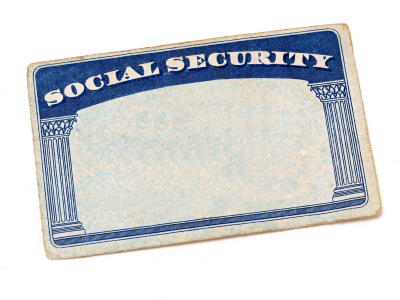Social Security
Our Preference For High Cost, High Risk Private Retirement Plans Is Crazy
June 02, 2016
When you favor public solutions to important, yet costly universal needs, you are immediately labeled a socialist. To avoid this label, you have to ignore the shortcomings and outright failure of the private sector’s handling of important “commodities” like health insurance, health care and retirement savings? Who could say with a straight face that before the Affordable Care Act, health insurance was easy to get for everyone? Or that before the Department of Labor’s fee transparency requirements, the retirement services sector was working hard to make sure plan participants knew they were paying any fees at all?
I get it. We are not a country that likes everyone getting a highly sought after good. Someone has to get it and someone has to not get it so that we know we worked harder or are just better or more deserving than the other person. But when we think like this, we let a small, privileged group of people reap huge rewards they didn’t earn. A group that understands our warped psychology and uses that knowledge to line their pockets...
Of course, the retirement and financial services industries are not the only sectors that take advantage of a status-focused and misinformed public. Nor does everyone in the industry engage in this kind of behavior. But lately I’ve been obsessed with just these guys. I’ve been reading a lot about financial fraud, including insider trading and the CalPERS bribery scandal, and the amount of money some people make cheating the system has led to my of course they are stealing from our retirement savings attitude. By stealing I mean overcharging for the services they provide and making backroom deals for their own benefit. Again, not all of them, but enough that we should rethink our preference for the private sector’s high-costs, high risks retirement savings model. Continue Reading...
I get it. We are not a country that likes everyone getting a highly sought after good. Someone has to get it and someone has to not get it so that we know we worked harder or are just better or more deserving than the other person. But when we think like this, we let a small, privileged group of people reap huge rewards they didn’t earn. A group that understands our warped psychology and uses that knowledge to line their pockets...
Of course, the retirement and financial services industries are not the only sectors that take advantage of a status-focused and misinformed public. Nor does everyone in the industry engage in this kind of behavior. But lately I’ve been obsessed with just these guys. I’ve been reading a lot about financial fraud, including insider trading and the CalPERS bribery scandal, and the amount of money some people make cheating the system has led to my of course they are stealing from our retirement savings attitude. By stealing I mean overcharging for the services they provide and making backroom deals for their own benefit. Again, not all of them, but enough that we should rethink our preference for the private sector’s high-costs, high risks retirement savings model. Continue Reading...
Comments
401(k)s For Poor Workers Is Absolutely Stupid
December 23, 2015
The retirement services industry knows its business. It designs, markets and administers retirement savings plans for a fee. In designing and marketing these plans the industry ignores the economic, social and cultural issues that make them inappropriate for low wage workers. This is especially true of 401(k) style plans because they require consistent and increasing contributions that are subject to loss.
Asking low wage workers to risk losing money to save for retirement is not only stupid, it's cruel.
And it's not just low wages that make 401(k) plans inappropriate for poor workers, many of these workers encounter social and cultural issues that make voluntary saving difficult. They often have to provide financial help to family members, while meeting their own day-to-day needs. As author Mel Jones points out in her excellent article in washingtonmonthly.com, The Second Racial Wealth Gap, this is especially true for black and Hispanic workers.
A 401(k) Plan Alternative For Low Wage Workers
The new state and federal based Individual Retirement Account (IRA) programs are an option for workers whose primary obstacles to saving are accessibility, ease of use and risk aversion. However, these plans don't address the issues of not having enough to save and dealing with family financial obligations. These workers need a government program that deducts money from their paychecks and diverts it to a guaranteed retirement income plan. A plan that also offers advantageous tax benefits that wealthier workers enjoy from participating in 401(k) style plans.
The great thing about coming up with alternatives to the 401(k) plan is that we already have models in the form of Social Security (SS) and the Retirement Savings Contribution Credit (SAVER's) credit. So instead of state run IRAs, we could have state run defined contribution plans modeled after Social Security, not traditional pensions. We can call them, State Retirement Plans For Low Wage Workers or SERPLOWs.
Funding SERPLOWs: Continue Reading...
It’s On. Financial Services Firms Won’t Give Up Their Control Over Retirement Plans Without A Fight.
June 23, 2015
It is fair to say that before federal and state lawmakers started focusing on individual access to health insurance and retirement plans, the private sector was okay with maintaining the status quo. A system where if you worked for a large employer and were continuously employed, you could receive subsidized health insurance and have access to a convenient workplace retirement plan. And, the higher your income the more you benefitted from the tax-favored design of these plans.
Then along came the Affordable Care Act (aka Obamacare), bringing the lack of access to affordable health insurance for tens of millions to the top of the public policy agenda. Sensing an inevitable shift in the status quo, private sector health insurance companies and big pharmaceutical companies mobilized to protect their interest. Change to the status quo was fine with them as long as the status quo did not change. Additions to the status quo that left the existing system intact are okay. They lobbied hard to get everything they wanted and little or none of what they did not, and they succeeded.
Soon after, the federal and many state and local governments turned their focus to individual access to retirement savings plans. They found similar problems as with access to health insurance. The lower an individual’s income, the less hours they worked, and the smaller the company they worked for, the less likely they were to have access to a workplace retirement plan. To address the issue, lawmakers proposed their own plans. Some wanted to allow workers without workplace retirement plan access to federal or state retirement plans. But most elected to design new plans that had some but not all of the features of 401(k) style defined contribution plans. Now who would have a problem with this approach? The current system showed little or no interest in these workers. Surely, the financial services sector would not object to everyone having access to a workplace retirement plan. Well, some of them kinda do object.
We Don’t Need No New Plans
Large financial institutions were not completely supportive of the idea of adding “new” retirement plans. They felt like they already had products to meet everyone’s needs even if they did not market these products to the individuals policymakers were trying to help. When President Obama announced the creation of the MyRA (My Retirement Account), many financial service providers scoffed. They called and small potatoes and redundant.
Some suggested that the states might be able to do a better job at addressing the retirement plan access problem. Continue Reading...
Employee Benefit Pros Should Add Medicare and Social Security To Their Knowledge Arsenal - Part 2 (Social Security)
June 23, 2014

In Part I of this two-part series I discussed the importance of understanding Medicare program basics. In Part II, I will discuss how equally important it is for benefit pros to have a good understanding of the Social Security (SS) benefits program.
Unlike with Medicare employees generally don't think they need assistance understanding how Social Security works and when to apply for benefits. The reality is many workers know very little about the SS program. For example, a significant number think that the SS taxes they pay fund their specific benefits. And many do not know their SS full retirement age and that they receive a smaller benefit amount when they elect to receive benefits before normal retirement.
Employers play a large role in financing SS benefits. It is in their best interest to help workers get the maximum SS benefit so they retire when they want, not when they can.
Social Security 101 For Benefit Pros
The federal Social Security program is complicated. There are SS experts with decades of experience that don’t know everything there is to know about SS. No one expects employee benefit pros to know as much as a SS expert dedicated to the field, but the top benefit pros will have a complete understanding of these five basic SS features. Continue Reading...
Employee Benefit Pros Should Add Medicare and Social Security To Their Knowledge Arsenal - Part 1 (Medicare)
June 20, 2014

Many employee benefit professionals working in the private sector know little about the federal Medicare and Social Security (SS) programs. This is probably true of public sector and not-for-profit pros too... And that's unfortunate because employees have a lot of questions about both programs. They see deductions from their pay for these programs and assume HR can provide answers to their Medicare and SS questions. They quickly learn that they are on their own in navigating these benefit programs that seem an extension of what their employer currently provides.
Of course it is not the employer's job to counsel employees on their Medicare and SS options but why not help provide a basic understanding of the programs. If the concern is legal liability, don't give advice. If the concern is fear of providing the wrong information, make sure you know what you are talking about before you open your mouth and always include a verbal or written disclaimer. And if the concern is that Medicare and SS benefits are not your area of expertise, don't claim that it is and study up.
Medicare 101 For Benefit Pros
Benefit pros don't need to know everything about Medicare, but they should have a very good understanding of these five basic Medicare features. Continue Reading...


 Denise Perkins
Denise Perkins




